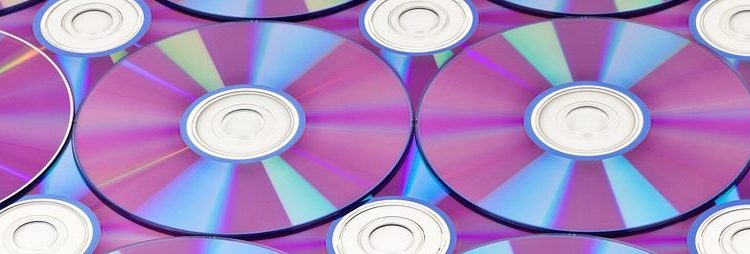Tagging
While I’m a big fan of CDDB, it’s important to recognise its limitations. I have a few CDs which are not in the CDDB database, and a few only stored in a foreign language. With a good audio tagging tool, we can fix this issue.
A bigger issue for some collections is that CDDB is oriented towards pop/rock music with the typical artist/album/song structure. If you’re a fan of classical music this can pose a problem given that CDDB lacked a standard way of storing composers’ names.
Here’s an example of the tagging with a classical CD.

The CD is Donizetti’s opera Poliuto. As you can see the artist is recorded as Donizetti. However, the artists are Maria Callas and the Milan La Scala Orchestra conducted by Antonino Votto. The user contributed database entries seem to confuse artist with composer.
Kid3 is our favorite open source audio tagging tool. With this tool it can fix the tags and ensure consistency in your music collection in an efficient way, i.e. with as few mouse clicks and key strokes as possible.
Kid3 has a great feature set which I’ve reproduced below.
- Edit ID3v1.1 tags
- Edit all ID3v2.3 and ID3v2.4 frames
- Convert between ID3v1.1, ID3v2.3 and ID3v2.4 tags
- Edit tags in MP3, Ogg/Vorbis, DSF, FLAC, MPC, MP4/AAC, MP2, Opus, Speex, TrueAudio, WavPack, WMA, WAV, AIFF files and tracker modules (MOD, S3M, IT, XM)
- Edit tags of multiple files, e.g. the artist, album, year and genre of all files of an album typically have the same values and can be set together
- Generate tags from filenames
- Generate tags from the contents of tag fields
- Generate filenames from tags
- Rename and create directories from tags
- Generate playlist files
- Automatically convert upper and lower case and replace strings
- Import from gnudb.org, MusicBrainz, Discogs, Amazon and other sources of album data
- Export tags as CSV, HTML, playlists, Kover XML and in other formats
- Edit synchronized lyrics and event timing codes, import and export LRC files
- Automate tasks using QML/JavaScript, D-Bus or the command-line interface
Once you’ve got the music tags in order, you can then move the collection to a network drive. Listen to your music collection on any device.
Pages in this article:
Page 1 – Ripping
Page 2 – Tagging

I still use EasyTag as its GTK+ based.
Looks like EasyTag is no longer developed. Seems the last release was way back in 2016.
Fun, introductory article.
I actually believe that FLAC (or any other lossless codec) is a waste of disk space. A CD encoded with a modern, properly configured MP3 sounds as good as FLAC, while saving precious storage.
Instead of FLAC, set MP3 to variable bit rate (VBR) and 256Kbps/sec. Unless you are a bat or a dolphin, you won’t be able to hear any difference between MP3’s recorded this way, and FLAC.
It”s true that even with your collection in FLAC format, unless all of the audio chain is very good, the FLAC argument becomes largely academic. But with a high quality sound card, speakers, speaker cable etc, the difference between FLAC and MP3 is audible.
From my perspective the amount of space consumed is not a factor. I guess it might be if I had 10.000 CDs
Anyone who thinks a high bitrate MP3 sounds identical to a FLAC encoded track is probably using terrible speakers. It’s the same sort of comment that people always make about those tiny Bluetooth speakers and how they sound great. Until you’ve heard an audiophile’s setup for yourself you remain in the dark.
Spot on mate.